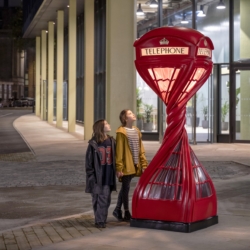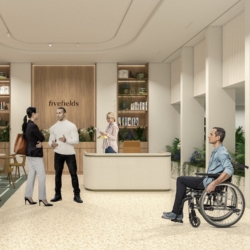To provide the best experiences, we use technologies like cookies to store and/or access device information. Consenting to these technologies will allow us to process data such as browsing behaviour or unique IDs on this site. Not consenting or withdrawing consent, may adversely affect certain features and functions.
The technical storage or access is strictly necessary for the legitimate purpose of enabling the use of a specific service explicitly requested by the subscriber or user, or for the sole purpose of carrying out the transmission of a communication over an electronic communications network.
The technical storage or access is necessary for the legitimate purpose of storing preferences that are not requested by the subscriber or user.
The technical storage or access that is used exclusively for statistical purposes.
The technical storage or access that is used exclusively for anonymous statistical purposes. Without a subpoena, voluntary compliance on the part of your Internet Service Provider, or additional records from a third party, information stored or retrieved for this purpose alone cannot usually be used to identify you.
The technical storage or access is required to create user profiles to send advertising, or to track the user on a website or across several websites for similar marketing purposes.







 If you don’t already subscribe to our weekly newsletter – Insight – please join the thousands of workplace professionals, facilities managers, real estate experts, suppliers, service providers, architects, designers and specifiers from around the world who do by filling out your name and email on the right. Or see the
If you don’t already subscribe to our weekly newsletter – Insight – please join the thousands of workplace professionals, facilities managers, real estate experts, suppliers, service providers, architects, designers and specifiers from around the world who do by filling out your name and email on the right. Or see the 
 The news from the weekend that Axa Real Estate is looking to raise around £1bn to invest in buildings with very long leases has resparked the debate into what sort of lease represents the best value for investors and tenants in these uncertain times. The new fund will target commercial properties with minimum twenty year leases even though investors have to pay a premium for such properties and the majority of occupiers don’t want them.
The news from the weekend that Axa Real Estate is looking to raise around £1bn to invest in buildings with very long leases has resparked the debate into what sort of lease represents the best value for investors and tenants in these uncertain times. The new fund will target commercial properties with minimum twenty year leases even though investors have to pay a premium for such properties and the majority of occupiers don’t want them. 


















November 8, 2024
That conversation about hybrid working? Same as it ever was
by Marcus Bowen • Comment, Facilities management, Flexible working, Property